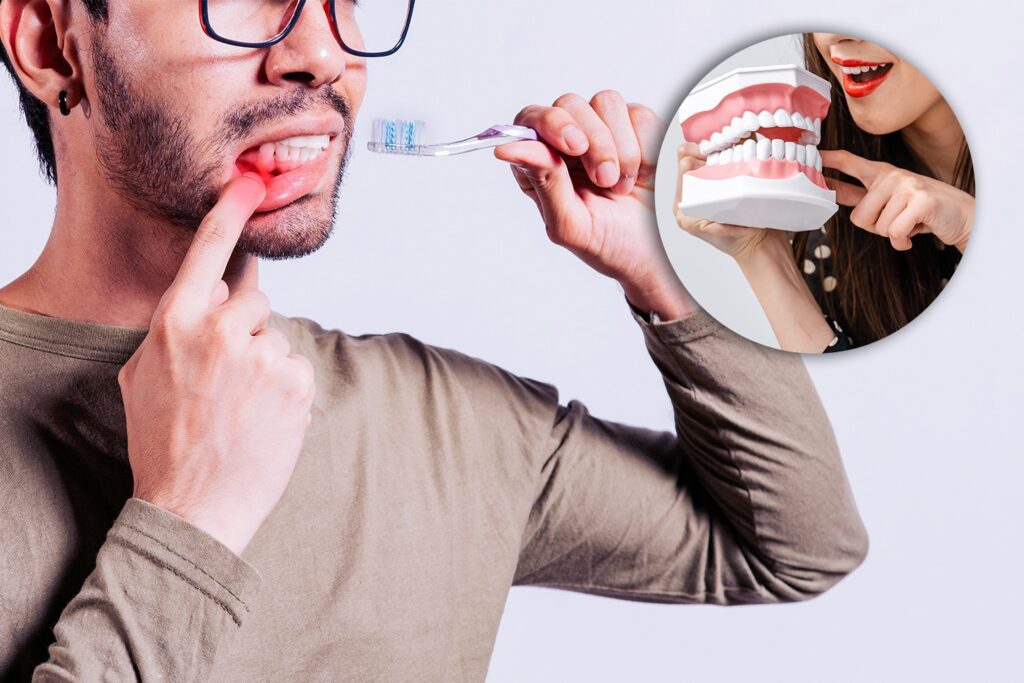
Common yet sometimes disregarded oral health concern gingivitis is an early form of gum disease that, left untreated, can develop into a more serious condition called periodontitis. Although it is a common worry, the good news is that, with appropriate oral hygiene and regular dental treatment, gingivitis is both avoidable and curable.
Gingivitis is what it is?
When plaque accumulates and the gums—more especially, the gingival tissue at the base of the teeth—become inflamed, a condition known as gum disease results. If plaque—a sticky coating made of food particles, germs, and saliva—is not removed right away—it might harden into tartar. Gum disease is set up by this accumulation causing inflammation and discomfort of the teeth.
Early-stage gingivitis can be controlled, claims Harvard School of Dental Medicine assistant professor Dr. Tien Jiang, with adequate oral hygiene and expert cleanings. Prolonged inflammation, however, can cause periodontitis, which might compromise the tissues and bones supporting the teeth and hence cause tooth loss. Finding if gum disease has progressed to periodontitis sometimes depends on dental X-rays.
Furthermore, research indicates that gum disease affects not only dental health but also major medical conditions including heart disease, stroke, and cognitive decline.
Signs to Look For
One of the reasons gingivitis sometimes goes undetectable is it could not be very uncomfortable in its early phases. As the disorder advances, though, people may have symptoms including:
Red, swollen, or soft gums
Gum bleeding while flossing or brushing
Halitosis, or constant unpleasant breath
Sores in the mouth
Early identification of these symptoms and fast dental treatment can assist to avoid consequences.
Typical Risk Factors and causes
Usually starting with inadequate oral hygiene, Gingivitis can develop for a number of reasons including:
Use of tobacco or smoking
Changes associated to pregnancy in terms of hormones
Unregulated diabetes
Certain infections
teeth that are misaligned and complicate cleaning
Unclean dental tools include braces or dentures
Some drugs that compromise dental health
Knowing these risk factors will enable people to approach prevention actively.
Home Cleaning and Dental Treatment
Control of gingivitis depends on professional dental cleanings. By removing plaque and tartar accumulation under the gum line with specialized instruments, dentists and dental hygienists help to lower inflammation. Some people may find gum discomfort following a full cleaning. Under such circumstances, moderate painkillers like acetaminophen or ibuprofen or rinsing with warm salt water can help.
According to Dr. Jiang, avoiding plaque development mostly depends on keeping correct brushing procedures. For more plaque control, dentists may advise electric toothbrushes, water flossers, or specialized toothpicks.
Reverse and Prevent Gingivitis: How?
Reversing and avoiding gingivitis mostly depends on good dental hygiene. To get food waste and plaque out, experts advise brushing at least twice a day and regular flossing. Brushing with a mirror will assist people find spots they might have missed, thereby guaranteeing a more complete cleanliness.
Furthermore helpful in reducing tartar development are anti-plaque toothpaste or mouth rinses. Effective brushing skills are crucial since as people get older their dexterity may drop. Better oral care is made possible by over-the-counter plaque-disclosing rinses or tablets helping to emphasize regions where plaque accumulates.
Although most people efficiently clean the smooth and chewing surfaces of their teeth, Dr. Jiang stresses the need of paying close attention to the gum line and areas between teeth to avoid gum disease.
Value of Oral Hygiene
Although Gingivitis seems like a little problem, ignoring it could cause major problems with teeth and general health. Regular dental visits, appropriate oral hygiene practices, and addressing risk factors help people to preserve their gums and stop gum disease from spreading.
Confidence in a smile and general wellbeing depend on healthy gums. Little actions taken now will have a big impact on long-term dental health.








